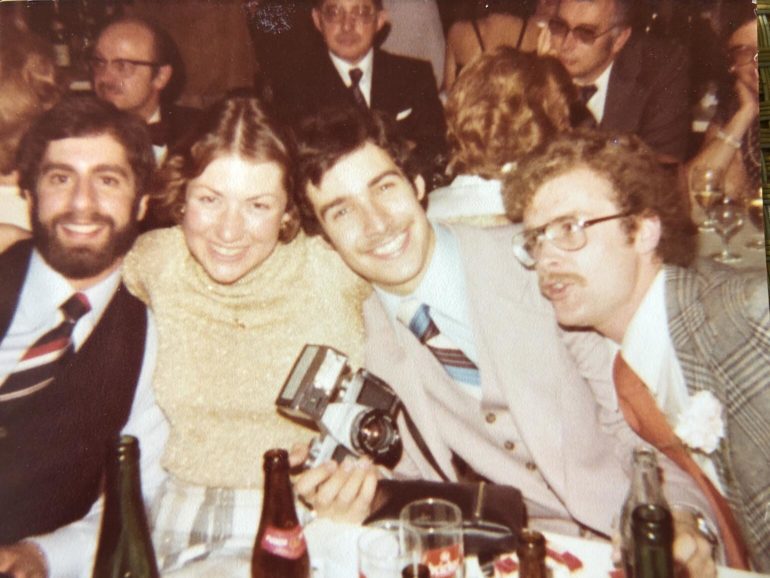“No, merci, je suis pleine,” Laure told her host family in Luxembourg at dinner on her first night in Europe. Everyone dropped their napkins, left the table glaring at her. She had meant to say that she was “full” when offered another serving of the main course. Instead, she had just told the entire family, people she was meeting for the first time, that she was pregnant, as in, “No, thanks, I am knocked up.”
It was a lesson in translations and slang. After clearing it up with the Miami University European Center program administrator the next day, the rest of the year abroad in 1976-77 with Laure’s host family was smooth sailing.
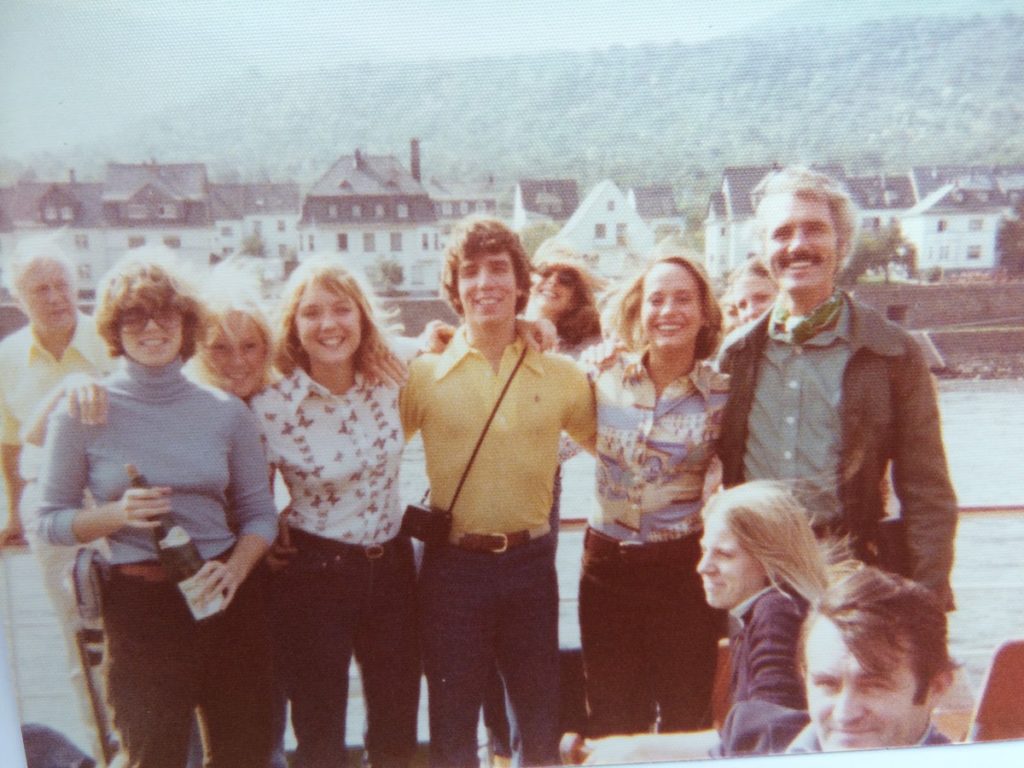
These kinds of memories generally fade into the distant past, at best to be called up during an infrequent reunion with fellow students, convened perhaps every five or ten years.
But in the main, such gems are consigned to oblivion, as George Washington famously said in his farewell address (which Lin-Manuel Miranda celebrated in the song “One Last Time” for his musical Hamilton). Those snippets of memory fly out through the solar system of our memory banks into the vast universe beyond, rarely recoverable after the passage of enough time.
I was among those fortunate to be among that group that spent a year in Luxembourg in 1976-77. I was in Berlin, then a divided city, on the day Jimmy Carter won the presidency. Mao died when we were in Europe. Miami University had just started the program in 1968, so we were sort of an experiment in the making. Today such programs are commonplace; but not then. We were pioneers. And we were cut off from our families and friends—no cell phones or texts like today, just airmail or extremely expensive and short phone calls once a month.
So in the spring of 2020 when the pandemic found all of us suddenly working from home and uncertain about our ability to avoid a killer virus that liked to target people 65 and older (Yikes, that’s almost us!), I called a few of my Lux pals to see how they were holding up. That first Zoom call quickly expanded to include a few more of our friends from that year abroad. And then just as fast, the Zoom call included a list of 75 folks, many of whom had not seen each other in nearly 40 years. The call became a regular happy hour from 5 to 6 PM every Friday—and we now have become addicted to the meetings.
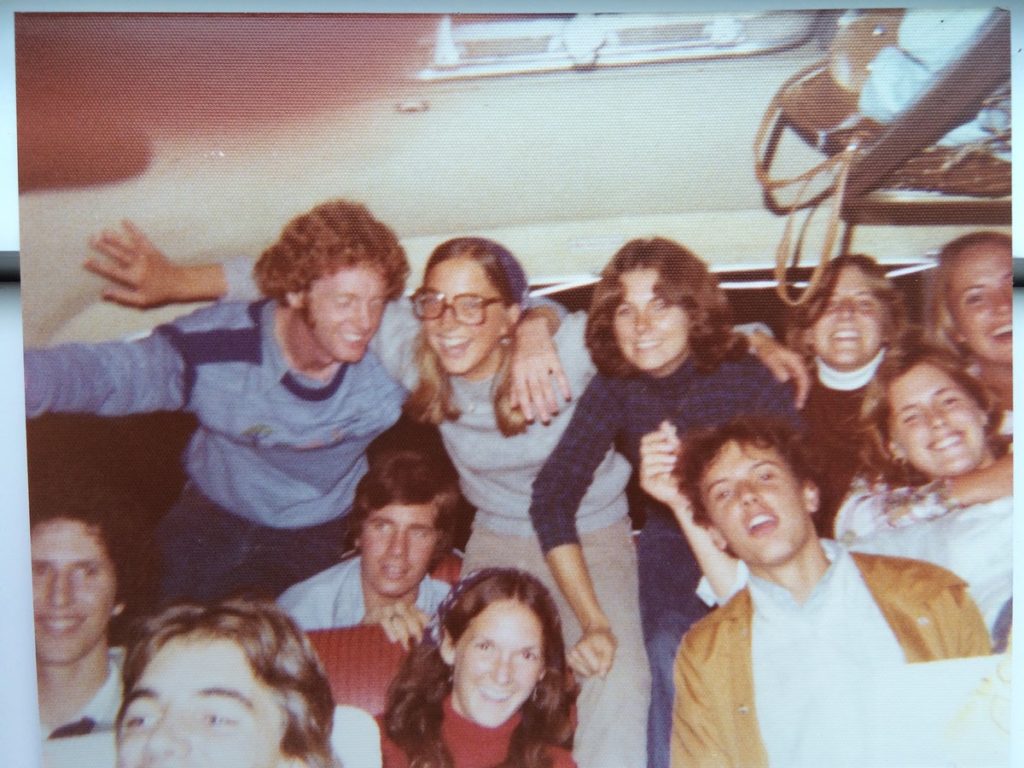
Like many people who have convened similar Zoom get-togethers during the pandemic, we thought we’d drop it after we were all vaccinated and safe. But then came Delta, and then Omicron. The surprising return on this investment of time, though, has been immeasurable.
Probably because the group had an international bent, we have some unusually credentialed and experienced people, coming as we did from a non-Ivy state school out of Ohio (Miami University, near Cincinnati, was a university before Florida was a state, we like to remind people).
One of my roommates was with the State Department, or so we thought until he told us when he recently retired that he had been in the CIA the entire time (you need permission to share this with others). He served in several locations of significance to the Cold War and the war on terrorism. Another roommate, Tim, really was in the State Department, though I always suspected he was in the CIA, given his academic emphasis on Russia.
Bill became chief counsel to Bob Taft, an Ohio governor, and currently sits on the Ohio Court of Appeals in Columbus. Monica worked for 10 years with Melinda Gates as the Deputy Director of Family Planning and traveled the world in work dedicated to women’s health and reproductive rights.
Amy became a psychiatrist who worked in Ohio prisons. Several became teachers and professors. Scott stayed in Paris and received his PhD at the Sorbonne and to this day lives with his French family on the Left Bank. Another Tim returned to Berlin, became a translator from German to English of highly technical manuals.
Geoff Baer will be known to Chicagoans as the host of architectural tour programs produced for WTTW, Chicago’s very large PBS station. He hosts a national series “10 That Changed America” about the history of architectural and urban planning in this country. The infectious joy he brings to his broadcasting was known to all of us who traveled with him to the capitals of Europe when we were all 20-year-olds.
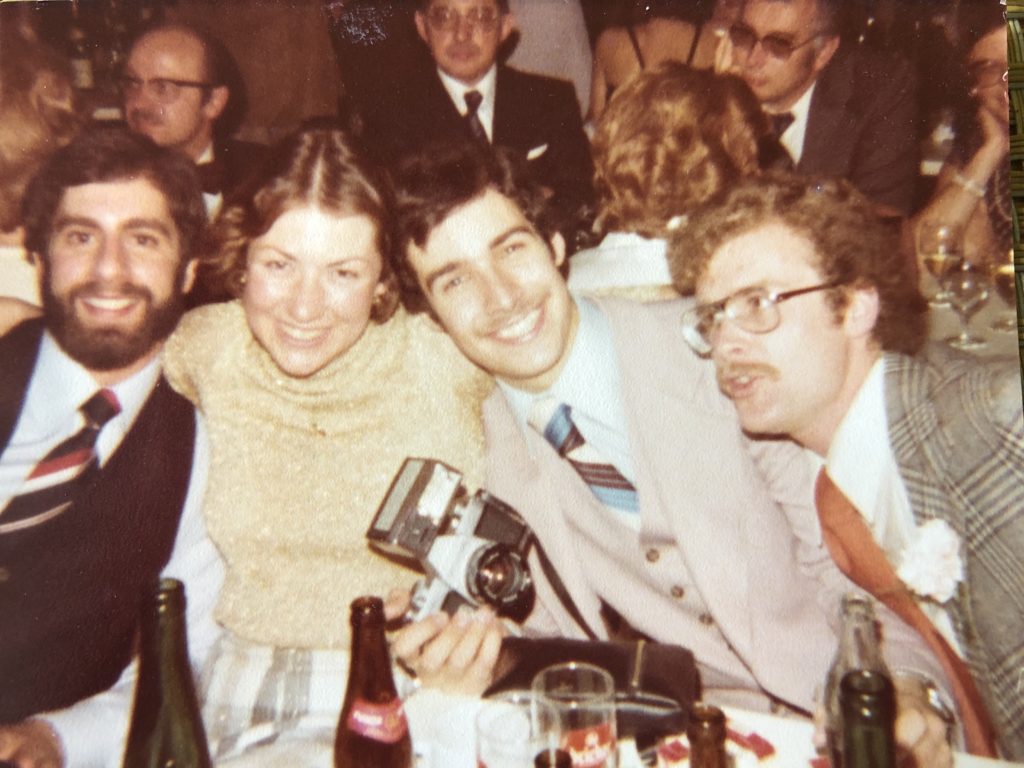
Diane ended up working for the World Bank, traveling to Africa to address poverty. Rose spent years with U. S. Agency of International Development in Bolivia, Uruguay, El Salvador, and Guatemala, all after her time as a trial lawyer in the antitrust division at the Department of Justice.
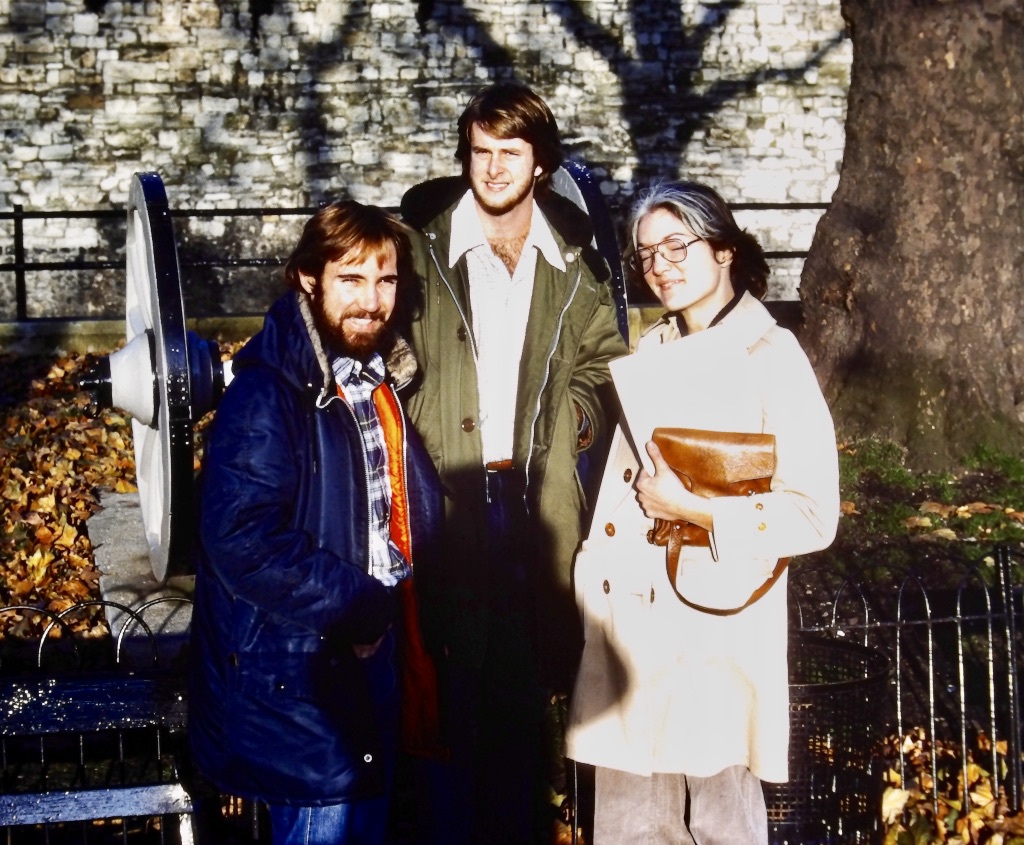
Two of our friends have remade themselves in the last decade. Lisa was ordained and became the first female senior minister in the historic UCC Dublin Community Church in Columbus, Ohio. Nancy studied to became a certified project management professional and now is the Managing Editor for Exhibitions and Collections at the National Gallery of Art.
I went to law school and joined a large law firm in Cleveland, but I have also written books about American history—one about Warren Harding’s affair with a German spy during the Great War, another about Richard Nixon and January 1973, the month when Roe v Wade was decided and the U. S. ended its involvement in the Vietnam War, and another about a shootout in Cleveland in the summer of 1968 between Black Nationalists and Cleveland Police. I frequently write for The Washington Post about history. In 2011, I started lecturing with John Dean, Nixon’s White House Counsel, on Watergate and legal ethics. Our first programs were in Chicago.
And, oh yes, one of our friends started Make It Better Media Group in Chicago. Susan and her husband Nick are also patrons of the arts in Chicago and other great causes.
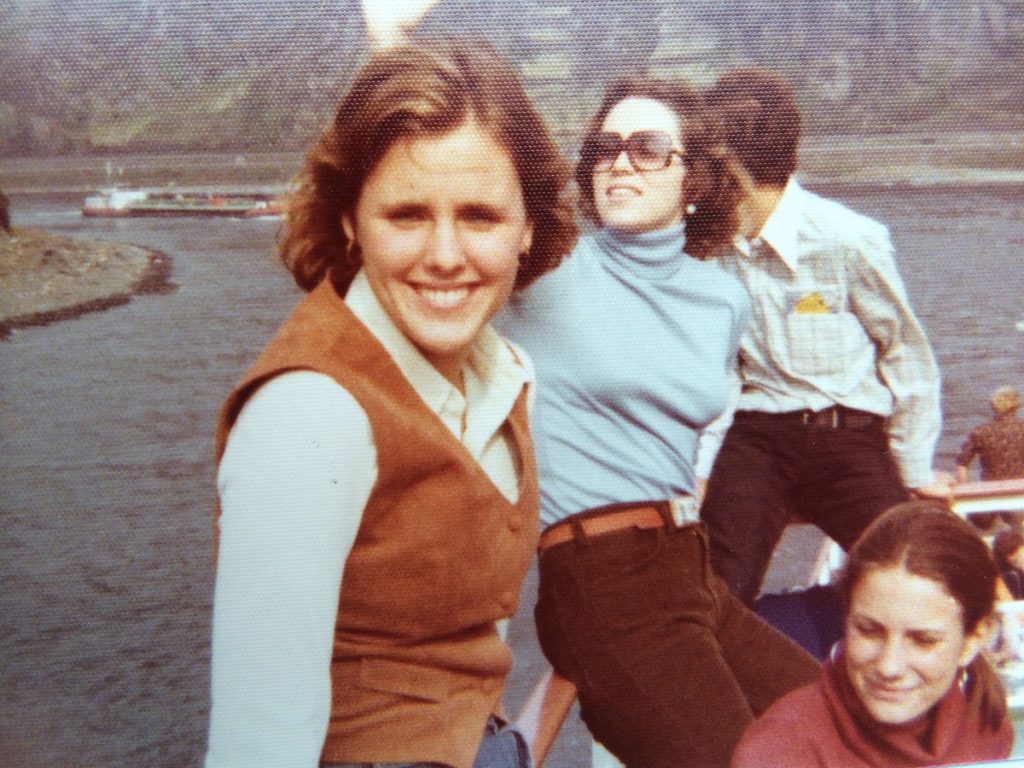
The point is: we rarely are at a loss for topics to discuss in our one-hour Zoom call (we keep it strictly to one hour, by the way, as Zoom fatigue is real and deadly). But we found out that even these high-level conversations or talk about memories of our travels together as young adults were not really what kept us coming back week after week.
There are few people in life who knew you before you became a title, like lawyer, government worker, parent, minister, doctor, teacher. Those people know the real you. This is especially true for us because going to Europe in college was when we first faced the world totally on our own, finding our own independent paths, thinking of the endless possibilities of the future.
So there is a comfort in our discussions that leaves out the need for pretense.
But there is something even deeper at work here. Many of our memories from 40 years ago are now past Jupiter in our mind’s solar system. It takes certain specific people to help retrieve those kind of deep space memories. Our memories, after all, are only complete as collective memories—and close friends and family are the only ones who can help us fill in the details of certain events or tell us about things we may have truly forgotten.
But when we grab those distant memories and bring them back to the present, we start that process all over again. The memories are here, but they immediately start their trek out to the farthest reaches once again. Except this time we have written many of these memories down in a diary we created. Who knows, maybe great-grandchildren will read about who we were in this strange diary about 1976-77 written in the time of the pandemic in 2020-22?
Most people recognize this memory phenomenon when a family member dies. You mourn not just the loss of that loved one, but you feel diminished because they completed your memories and now there is a hole.
I don’t know how much longer we will hold regular calls. I am somewhat surprised we continue two years later. But I do know that it is important to reconnect with friends who knew you when you were in such raw state of development. Those people define who you have become. They are also truly your living memory.
As part of our “You Said It” Op-Ed series, we invite contributors to submit their opinion pieces. Have a submission? Contact us.
More from Better:
- Glencoe’s Meal Match Feeds Two Needs — and More Local Restaurants Want a Seat at the Table
- ‘The Women Who Made Us Who We Are’: The Power of Your Family Stories
- Better Makers: The Associate Board of the Juvenile Protective Association Raises $100,000 to Provide Mental Health Support to Vulnerable Children
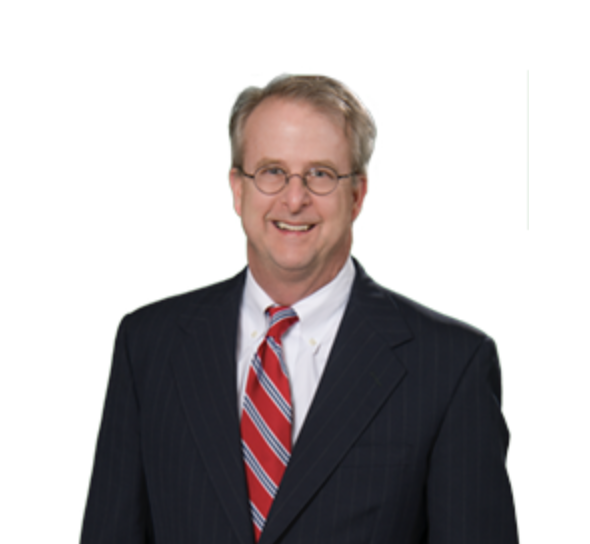
James Robenalt is an attorney in Cleveland and has written four nonfiction books, including January 1973, Watergate, Roe v Wade, Vietnam, and the Month That Changed America Forever and Ballots and Bullets, Black Power Politics and Urban Guerrilla Warfare in 1968 Cleveland.
